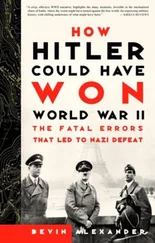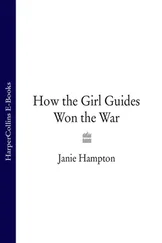Jonathan Dimbleby
BARBAROSSA
How Hitler Lost the War
Contents
Illustrations
Maps
Preface
PART ONE – THE SLIDE TO WAR
1 Paving the Way
2 Dictators and Democrats
3 Shuttle Diplomacy
4 Self-Delusion and Bad Faith
5 A Pact with Satan
6 Thieves Fall Out
7 Stalin Ignores the Warnings
PART TWO – INVASION
8 The Blitzkrieg
9 Hatreds and Horrors
10 Watching On
11 Stalin’s Rallying Cry
12 A Shaky Alliance
13 Hideous Realities
14 America Makes a Move
15 Disarray on the Soviet Front
16 Hitler’s Hiatus
PART THREE – COUNTERSTRIKE
17 Between the Lines
18 The Carnage of Kiev
19 Leningrad
20 Wars of Words
21 Operation Typhoon
22 The Great Panic
23 General Mud
24 The Jewish Question
25 Allied Preoccupations
26 Mood Changes
PART FOUR – RETREAT
27 The Final Assault
28 The Fateful Terminus
29 A Global War
30 The Retreat
31 Eden Meets Stalin
32 The Fatal Gamble
Epilogue
Acknowledgements
Notes
Select Bibliography
Index
About the Author
Jonathan Dimbleby’s previous books include the highly acclaimed Second World War histories The Battle of the Atlantic and Destiny in the Desert: The Road to El Alamein , which was shortlisted for the Hessell-Tiltman Prize and was followed by his BBC2 programme Churchill’s Desert War . His other books include Russia: A Journey to the Heart of a Land and Its People , Richard Dimbleby: A Biography , The Palestinians , The Prince of Wales: A Biography and The Last Governor: Chris Patten and the Handover of Hong Kong .
Praise for Barbarossa
‘With his customary literary flair and capacity to master and mobilize very many and varied sources, Jonathan Dimbleby gives us the best single-volume account of the Barbarossa campaign to date’
Andrew Roberts, author of Churchill: Walking with Destiny
‘Jonathan Dimbleby rightly identifies the last six months of 1941 – following Hitler’s invasion of the Soviet Union – as the fulcrum on which the history of twentieth century Europe turns. It’s a vital story, one everyone should know, and Dimbleby tells it with verve and elan’
Laurence Rees, author of Hitler and Stalin
‘Like a fast-moving juggernaut of horror, Dimbleby’s Barbarossa is a page-turning descent into hell and back … this fresh and compelling account of Hitler’s failed invasion of the Soviet Union should be on everyone’s reading list for 2021’
Amanda Foreman, author of A World on Fire
‘Jonathan Dimbleby’s analysis of this monumental struggle is masterly, not least by his use of unpublished Russian sources’
General Sir Mike Jackson
‘After The Battle of the Atlantic , another vivid and engrossing tableau from a master of military and high-political narrative’
Brendan Simms, author of Hitler: Only the World Was Enough
‘Jonathan Dimbleby’s masterly account of the most monumental conflict in human history is an impressive achievement. This is a fast-paced, gripping read, but it is the wealth of eyewitness evidence detailing the unspeakable horror and hardship, the apocalyptic scenes and sheer savagery of Barbarossa that leaves the most lasting impression’
Julia Boyd, author of Travellers in the Third Reich
‘A great read. Dimbleby gives an excellent account of the relationships between the leaders and, thanks to a wide range of sources, an authentic sense of the military experience … he brings Barbarossa very vividly to life, as if you are there’
Robert Kershaw, author of War Without Garlands: Operation Barbarossa 1941–1942 and Borodino Field 1812/1941
‘Jonathan Dimbleby’s thought-provoking and elegantly written study of Operation Barbarossa describes in compelling detail how Nazi Germany, despite its earlier military triumphs, had lost this war already by the end of 1941. This book is a captivating eye-opener’ Gerhard Hirschfeld, author of The Policies of Genocide and former President of the International Committee for the Study of the Second World War
‘Jonathan Dimbleby’s epic account captures all the drama and magnitude of an event that determined not just the outcome of the war, but the future of the world’
Martin Sixsmith
‘Jonathan Dimbleby’s book is not only superbly well written, but also happens to be the most comprehensive study of Hitler’s invasion of the USSR in years’
Keith Lowe, author of Savage Continent
‘Expertly narrated and written with piercing (and often horrifying) clarity, this monumental work of popular history leaves no doubt that the holocaust of the Jews and the deliberate starvation and slaughter of many millions of Russian civilians were part of the Nazi plan from the outset’
Frederick Taylor, author of 1939: A People’s History
‘A chilling account of war at its worst’
Bear Grylls
‘Superb. Jonathan Dimbleby has produced an epic, compelling and powerfully written account of what was unquestionably the defining campaign of the Second World War. Full of fresh insights and vivid details, Barbarossa is a book of huge importance, and one that stays with you long after you have finished’
Henry Hemming, author of Our Man in New York
‘A brilliant account of the decisive land battle of the decisive land campaign of the Second World War, an epic in the story of industrialized land warfare … This is a wonderful piece of history, fresh with up to date details, new sources, and novel insights’
Robert Fox
For my grandchildren
Barnaby, Chloe, Max and Arthur
Illustrations
1. Field Marshal Wilhelm Keitel. (ullstein bild Dtl./Gettyimages)
2. Field Marshal Fedor von Bock. (ullstein bild Dtl./Gettyimages)
3. Field Marshal Wilhelm Ritter von Leeb. (ullstein bild Dtl./Gettyimages)
4. Field Marshal Gerd von Rundstedt. (ullstein bild Dtl./Gettyimages)
5. Field Marshal Walther von Brauchitsch and Franz Halder. (STF/AFP/Gettyimages)
6. General Gotthard Heinrici. (ullstein bild Dtl./Gettyimages)
7. Heinz Guderian. (Bettmann/Gettyimages)
8. Joseph Goebbels. (Keystone-France/Gamma-Keystone/Gettyimages)
9. Heinrich Himmler inspecting Soviet prisoners of war. (Historical/Corbis Historical/Gettyimages)
10. Hans-Ulrich Rudel. (ullstein bild Dtl./Gettyimages)
11. Defence Commissar Marshal Semyon Timoshenko and General Georgy Zhukov. (Sovfoto/Universal Images Group/Gettyimages)
12. Lieutenant General Konstantin Rokossovsky. (TASS/Gettyimages)
13. Colonel Dmitry Pavlov. (Bettmann/Gettyimages)
14. Marshal Kliment Voroshilov. (Universal History Archive/Universal Images Group/Gettyimages)
15. General Ivan Boldin. (Keystone/Hulton Archive/Gettyimages)
16. General Boris Shaposhnikov. (Paul Popper/Popperfoto/Gettyimages)
17. Maxim Litvinov. (Keystone-France/Gamma-Keystone/Gettyimages)
18. Harry Hopkins with Sir Stafford Cripps. (Margaret Bourke-White/The LIFE Picture Collection/Gettyimages)
19. Winston Churchill with Ivan Maisky. (Picture Post/Gettyimages)
20. Walther Rathenau at the Genoa Conference in April 1922. (ullstein bild Dtl./Gettyimages)
21. Georgy Chicherin. (Topical Press Agency/Hulton Archive/Gettyimages)
22. David Lloyd George. (Bettmann/Gettyimages)
23. Adolf Hitler and Neville Chamberlain at Munich in September 1938. (Keystone-France/Gamma-Keystone/Gettyimages)
Читать дальше
![Джонатан Димблби Barbarossa: How Hitler Lost the War [calibre] обложка книги](/books/385421/dzhonatan-dimblbi-barbarossa-how-hitler-lost-the-w-cover.webp)



![Traudl Junge - Hitler's Last Secretary - A Firsthand Account of Life with Hitler [aka Until the Final Hour]](/books/416681/traudl-junge-hitler-s-last-secretary-a-firsthand-thumb.webp)







